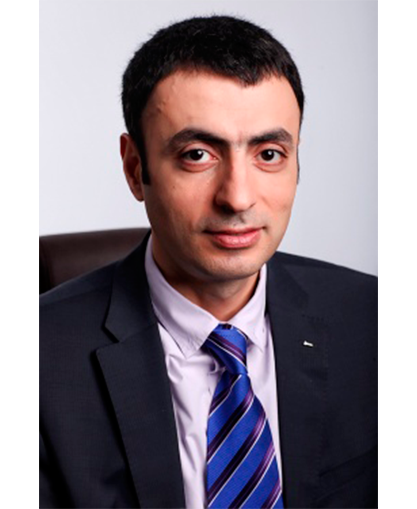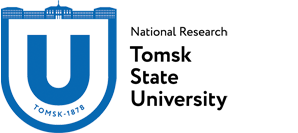Aram Pahchanyan, director of the Ayb School, to share experience of fundamental modernization in Armenian education system
The Ayb School Director and Vice President of the ABBYY Company group Aram Pahchayan will take part in the 2nd University Cities Forum. He will share his experience of establishing and administrating the Ayb School, which manifests a new style of the educational environment.
In 2016, Aram Pahchayan gave an interview to the RB.ru where he spoke about the Ayb School.
- Aram, where did it all begin? How did the Ayb School emerge?
- A group of school friends, including David Yan (the founder of ABBYY – ) and me, decided that we must return the favor to our school. It taught us a lot and it is also the reason we are who we are now. In 2007, we set up a fund and began to work on modernization of the Armenian education system. In a few years, it became clear that we needed a school where we could test new programs, methods and teaching techniques. More than 100 sponsors joined our initiative. We have already had two high school graduation ceremonies, opened a primary school and now the middle school is being established. This is a non-profit project, but since the school is private we do charge a fee but only to cover school expenses.
- What makes the education from Ayb school to be unique?
- In the countries of former USSR there were no schools where pupils could get an education that would allow them to get admitted to universities such as Stanford, MIT, and Oxford without any additional preparation. We set up that kind of school to get international recognition. The quality of education meets very high standards. We focus on providing universal education. Even those kids, who dream of becoming physicians, programmers, have to get at least 7 points in every subject (Armenia has a 10-point grading (GPA) system). Each student has a personal education trajectory program, the school uses credit system, so every child has to get a certain number of credits. And even when he has a 10 in Math, he must have no less than 7 points in others subjects. We want our graduates to be broad-minded and to be able to hold a conversation both with physicians and art experts.
- What is the cost of studies?
- The cost of primary and middle schools is paid by the parents. And it is $6000 per year. The high school is also to be paid for and the cost is roughly the same. We accept students into high school basing on the exam results. When students are passing examination, we don’t ask their parents, if they are able to afford the education. And only when the kids are accepted, we ask if they can pay the school bills or not. If they can, they pay. If not, they bring the documents that prove it, and after that the financial committee makes a decision to which extent the family is able to contribute. We fully or partially cover the school bills of approximately 70% of students.
- Can you boast about the success of your graduates? Which universities did they get into?
- When they came to us, they perceived us as a springboard into the world, for they were counting on moving to the USA or Europe. But after studying with us for three years, many students didn’t want to leave Armenia. A great majority decided to stay here, they will go to the American University in Yerevan, quite a modern and dynamic university. And one girl was accepted to Yale.
- How did you select the teachers?
- The working group that was responsible for turning this idea into a reality, attracted the experts in Physics, Chemistry, Biology, who were interested in this, and also university professors. Our biology teacher worked in Denmark, ran the laboratory there and then moved to Armenia. Very few of our professors are school teachers, the majority are the ones that came to work at school for the first time. In a way, it is a challenge for our school, because not everybody has mastered teaching. But when we ask pupils why they study so well, they reply that they don’t want to upset their teachers. The attitude that children have towards their educators doesn’t require them to have pedagogical skills. They teachers are required to know their disciplines well and to share their knowledge with kids.
- How did you manage to combine your work in ABBYY with your work at school all this time?
- Initially, the school was run by the employees of the fund. The Ayb school is not the only project that we have. We also hold a Math competition – Kangaroo, a comprehensive school project in Dilijan and a project for school s in countryside. The fund director was also the school principal. Today, the number of projects has grown significantly, and the school itself became bigger, primary and middle schools grew, so now we need a separate director. Previously, I personally visited the school once every two months, the rest of time we discussed issues via Skype, but there was always someone present to turn ideas into reality. It became clear that it doesn’t work like that anymore, but it is rather difficult to find people in Armenia who have the experience and understanding of how to manage a super-modern school.
- So there wasn’t anybody but you to do the job?
- My friends and I looked each other in the eyes and realized that one of us will have to head the school, otherwise, we would have to give up everything that we have done. And by choice it was me. Just so you understand, in Armenia this school is kind of a boom, we became a part or transformation educational reform. For me, to turn down this offer would be showing the indifference. I worries that it would be very difficult for me to leave my position in ABBYY behind, but thanks God, we managed to find a way for me to keep on working in ABBYY and to carry out project connected to social work.
- But are you moving away or are you going to live in two cities?
- One should live in a city where he works for the most of time. As I will be working in Yerevan, I will be living there as well. I will visit regularly Moscow and other cities where my presence will be in demand, because our company acts global.
- What is the main difficulty in working as a senior executive in a large IT-company?
- I don’t know what the main difficulty is; there is nothing simple in this job. There is a huge responsibility. When you have such a high position, you are committed to a lot of goals, and the most important in this situation is to know how to address the challenges, you must be ready for changes. It might turn out that my change of career field will inspire other people into changing something within the company. The reality of the world right now assumes that if you cannot change fast yourself, you will be replaced. Now 40% of companies from the top 500 from 10 years ago are no longer in the list. When there are a lot of people, responsibilities, a successful business – you must be ready to change and be the force behind these changes.
- What do you think will be the most challenging part in your new job?
- Perhaps, once again, being the driving force for changes. We are a different type of school; we have to prove that we have a right to be called the best and to convince others to follow our example. Our goal is not to solely make one good school, because we cannot educate more than 800 students in a single good school, and there are more talented kids. Our goal is to convince other school to follow our example or to implement its best practices. We want other countries to have schools like this. If we find interesting opportunities, we will be ready to share. One cannot be isolated from the world, it is very important to communicate and share your experience. We are already developing good relations with a few schools in Moscow.
- What do you think will be the role of online education in future?
- Online education already takes an important place – lectures as an educational method are becoming a thing of the past, instead of this there is now a new concept where students must know the material before the classes start. The classes themselves must be strictly practical in order to solidify knowledge. Whether or not it will move further, or if will be possible to build an educational system in which it will be possible to get knowledge without attending classes and having people-to-people contact – is a big question, because still the influence of a teacher on students is significant and it one shouldn’t disregard this completely. The fact that it became easier to get knowledge from video lessons than from reading has already happened and I agree with that. But the second part – interaction with a professor – is still a dubious question, and consistency is yet to be proved. If that happens we will be talking about the full realization of online education.
- Is the method where a student must be ready for the class beforehand already implemented at your school?
- We implemented it in Biology and Physics and are going to implement it everywhere. It helps to lessen the burden for kids and to teach them how to work independently. The amount of knowledge that child must receive at school grows year by year. The school education in Armenia is already taking 12 years and I think in Russia there will be a 12 years school system soon too. The amount of hours is increasing, Saturdays are already occupied, but it doesn’t help. The real way is indeed to teach children how to study independently, school’s goal is not to give pupil a certain set of knowledge (in a modern world all of this information can be found in every iPad at an arm’s length), but to teach students to think and to learn. For this reason, we must give children more opportunities to study on their own and not to burden them with the formal transmittion of knowledge, formal knowledge is only necessary as a prerequisite material. It is much more useful to develop practical skills.



